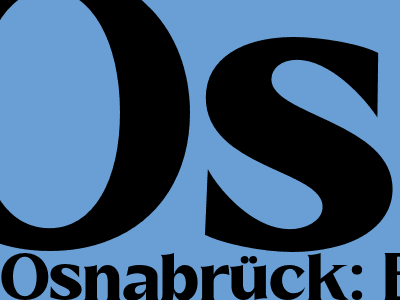
Osnabrück: Nuclear Waste Repository Threatens to Become a Social Litmus Test
Osnabrück is facing a potential social divide as the issue of nuclear waste disposal looms over the city. The planned repository has sparked heated debate, with proponents arguing the necessity of safely storing radioactive materials and opponents raising concerns about environmental and health risks.
Community Concerns and Protests
Citizens' initiatives and environmental groups have organized protests and public forums to voice their concerns. They demand transparency, comprehensive risk assessments, and alternative solutions for nuclear waste management. Local residents fear a decline in property values, potential health hazards, and the long-term consequences of nuclear waste storage in their proximity.
Scientific Perspectives and Risk Assessment
Experts emphasize the need for scientifically sound decision-making based on thorough risk assessments. The German Nuclear Safety Standards Commission (KTA) has developed comprehensive guidelines for nuclear waste disposal, including stringent safety measures to minimize the risk of accidents or leaks. Independent scientific studies have also supported the safety of the proposed repository, provided it meets the required standards.
Political Deliberations and Decision-Making
The political landscape in Osnabrück reflects the division within the community. The city council has voted in favor of hosting the repository, while the state parliament of Lower Saxony is yet to make a final decision. The federal government has the ultimate authority to approve or reject the project, and its decision will be influenced by both scientific evidence and public sentiment.
Balancing Economic Benefits and Environmental Concerns
Proponents of the repository argue that it offers economic benefits, such as job creation and infrastructure development. The repository is expected to employ hundreds of people during construction and operation. However, opponents counter that the potential economic gains are outweighed by the environmental and health risks associated with nuclear waste storage.
Public Engagement and Dialogue
Open and transparent dialogue is crucial for bridging the divide and reaching a consensus on this contentious issue. Public participation in decision-making, including citizen assemblies and stakeholder consultations, can help ensure that diverse perspectives are heard and considered. Effective communication and accurate information dissemination are essential to building trust and fostering informed decision-making.
Conclusion: Navigating the Social Divide
The issue of nuclear waste disposal in Osnabrück has exposed deep societal divisions and highlighted the challenges of balancing economic benefits with environmental concerns. Scientific evidence, risk assessments, and public engagement are key to navigating this complex debate. Ultimately, a socially acceptable and sustainable solution requires compromise, transparency, and a commitment to long-term safety and responsibility.